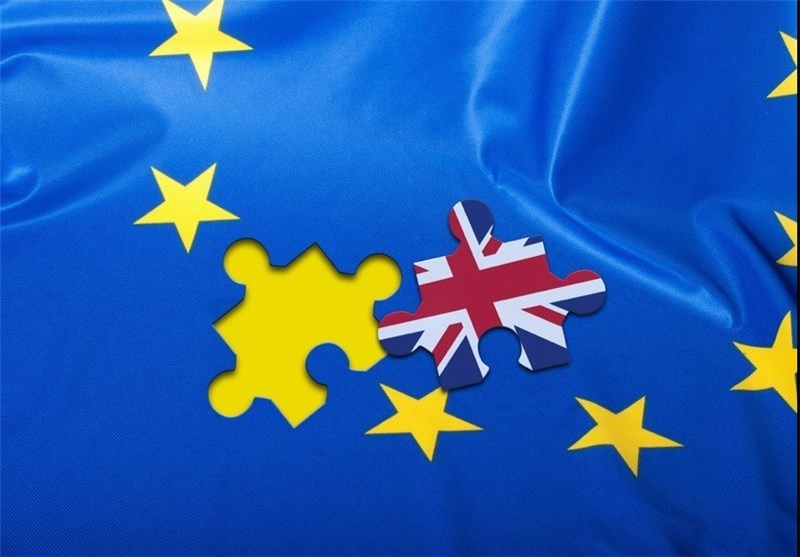In an interview with the website of the Strategic Council on Foreign Relations, Dr. Ali Mohammad Helmi said the issue of Brexit has been turned into one of the most complicated problems facing the British government and noted: The main purpose of Brexit was that the UK wanted to act with full authority in relation to the new economic contracts, which were mainly aimed at getting closer to the United States, and distance itself from the regulations of the Union in order to promise a better economy to the people.
British Concerns over Enforcing Brexit Following Trump’s Defeat
He further referred to the policies of the United States in relation to Brexit as well as special relations of Boris Johnson with Trump and said: Trump’s defeat in the US presidential elections has made things more difficult for British Prime Minister Johnson to some extent, and it seems that now he is following the issue with concern.
The international affairs analyst continued: Although the transition period ends in two weeks time, December 31, so far no agreement has been reached between the EU negotiators and Johnson’s government on the future of bilateral trade. The two sides do not have much time, which means that in about two weeks Britain should officially announce its withdrawal from the European Union, while there are still serious differences between the two sides.
Further elaborating on the differences between the two sides, Helmi said: The process for the payment of Britain’s debt as well as the cost for separation which should be paid to the EU, is one of those problems. The 39 billion dollar debt is one of those concerns, and in fact, Britain has not yet accepted it. The maritime and fishing rights, as well as the border between Northern Ireland and the Republic of Ireland for free trade, are other issues that remain unresolved.
Saying that Johnson has so far failed to come up with a plan to solve Brexit problems, he added: It is unclear whether, in the short time remaining, Britain intends to withdraw from the EU without an agreement or it is preparing a new plan.
Possibility of No Deal Brexit
The expert on international affairs further continued: Given Britain’s obstinacy towards some clauses in the agreement, it is possible that Britain will leave without reaching an agreement. Of course, we are witnessing that the Theresa May government’s proposed strategy for leaving the European Union, called the Chequers, which to some extent would resolve the issues of economic borders and economic exchanges between Northern Ireland and the Republic of Ireland on a one-year and temporary basis, has been taken into consideration.
Referring to news reports about growing possibility of Britain’s exit from the European Union without any deal, as well as the negative consequences of the Brexit for the British economy, he said: Certainly those consequences will weaken the popular base of Mr. Johnson’s party and will escalate pressure of the British public opinion, especially under the coronavirus situation, when that country is facing more economic problems and rising waves of unemployment.
Helmi pointed to the political challenges facing the British government and said: If the prime minister fails to come up with a solution before the EU and Britain, to reach an agreement for withdrawal, the Labor Party may take some steps to force the government to resign.
No-Deal Brexit Better than Bad-Deal
The expert on international affairs stressed: Certainly, for Britain leaving without a deal is better than leaving with a bad agreement; but it is impossible to predict how far the negative consequences of a hard Brexit will be expanded for Britain, given the unfavourable economic situation in the post-corona and the fragile situation that has emerged due to the expansion of the virus and ouster of Trump. Because the British government’s hopes and predictions about expanding trade with the United States may not be very realistic.
Helmi described the escalation of tensions between the ruling party and the Labor Party as another consequence of the hard Brexit and continued: In fact, the Conservatives may lose their party base and become weaker, in which case either the prime minister should resign or a new referendum should be held.
EU’s Tendency for the Return of Britain
Elaborating on the negative consequences of a tough Brexit for the European Union, he said: It seems that the European Union is more inclined to see Britain asking the EU to reconsider the cancellation of its membership in the Union. Perhaps it is waiting for them to make such a proposal, as it has stated that Britain can withdraw its exit request without any additional formalities.
Helmi pointed to the inflexibility of the European Union in negotiations with Britain and said: Of course, the European Union has stated that it should make sure that this decision is formally presented by the ruling government or that the British Parliament confirms that Britain and the United Kingdom intend to remain members of the European Union. Therefore, they are not much willing about Britain leaving the Union, because with the prevailing economic situation and the post-coronavirus wave of unemployment, losing the British labour market, as well as the economic market, is not very pleasant for Europe either. But, according to the defined rules, they intend not to reduce pressures on Britain so that it might reconsider its decision.










0 Comments